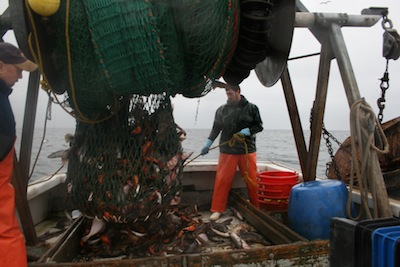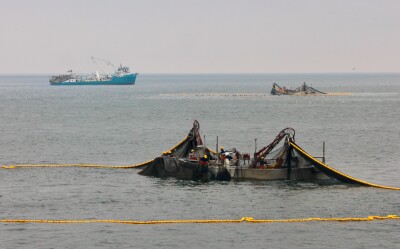As a journalist, my future job prospects seem to mirror those of commercial fishermen. According to the Department of Labor's Occupational Outlook Handbook, both commercial fishermen and journalists are facing a 6 percent decline in their fields with estimated job losses of 2,000 and 3,200, respectively, between 2010 and 2020.
So why do we keep trying? For me, it's simple. I like what I do. I like meeting people, learning about their lives (and livelihoods) and sharing those stories. Often, you never know what you’re going to find out until you begin talking to someone. Or should I say, reeling them in? In another similarity, I think fishermen and journalists both enjoy the thrill of the hunt.
And we both must adapt to survive. For fishermen, survival means making the most for your catch in the face of ever-rising expenses and figuring out other ways to remain viable on the water. I’ve written about some of these recently, such as direct marketing, catering to tourists and targeting different species when the primary one becomes scarce.
In covering this industry, I’m often impressed by the on-shore efforts of fishermen on top of their long hours on the water — which would be more than enough to exhaust me.
When markets are flat, you create new ones. I've seen fishermen work with top chefs to promote under-utilized species, and take part in initiatives to target invasive species like lionfish in the Gulf of Mexico. You're also quick to mobilize when action is needed, like the men and women with Commercial Fishermen of Bristol Bay who are working to halt the proposed Pebble Mine in Southwest Alaska.
But how possible is adaptation for U.S. fishermen? Regulations with good intentions may ultimately make it harder for fishermen to stay on the water. Catch shares, for instance, have worked very well for some commercial fishermen who’ve wisely used their shares to bring up their catch’s value and create a more stable market. But heavy investments in quota may be hard to maneuver around if and when fisheries change, which may be happening more as species shift their locations because of changing water temperatures.
As I consider my own future, I realize we have something in common. Our jobs may be very different, but we’re both doing what it takes to keep on doing what we love.
How are you adapting to survive?







